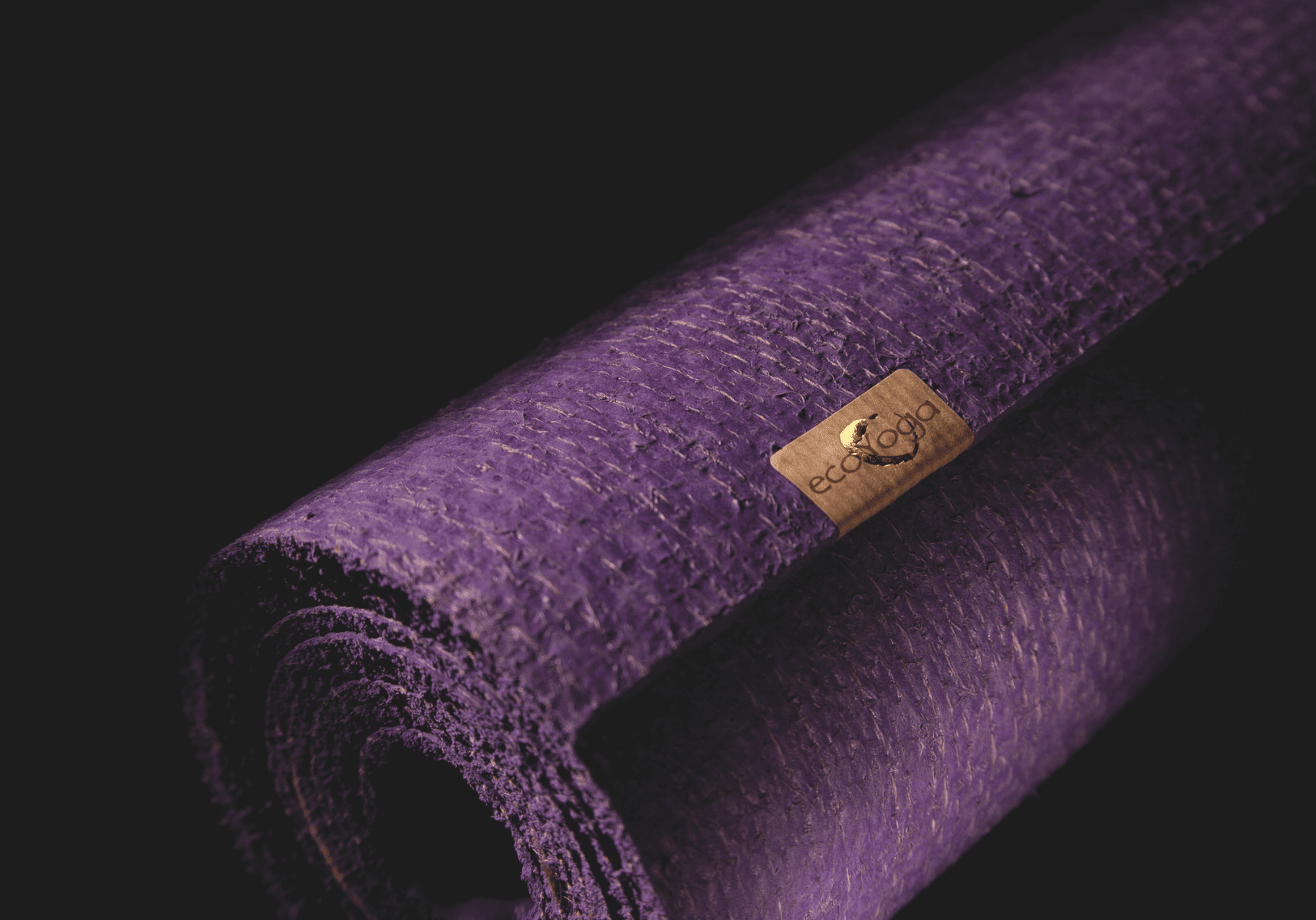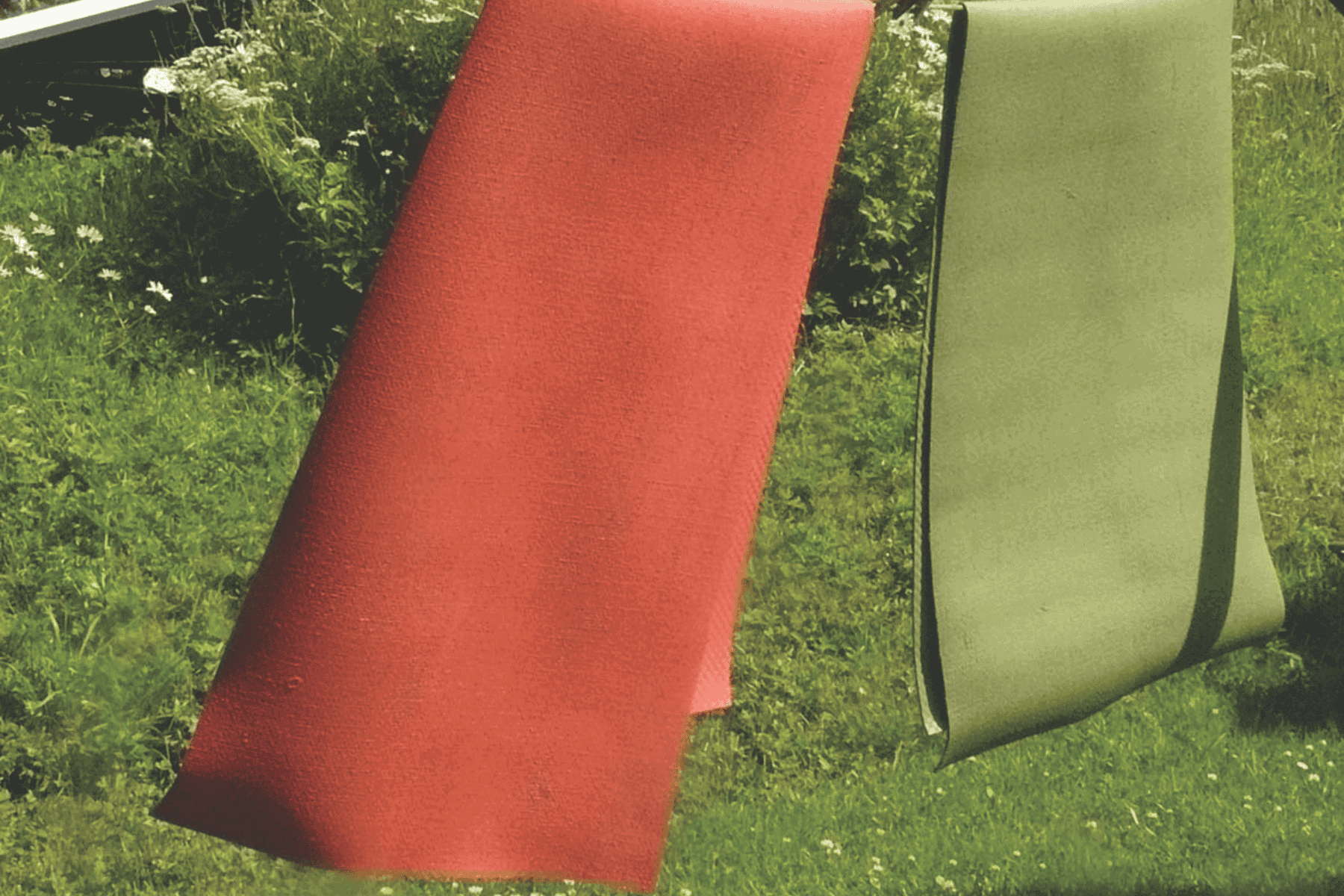
ecoYoga mats
Inside the eco-friendly world of ecoYoga mats
Reading time: 3-4 minutes
When ecoYoga Ltd launched its yoga mats in 2003, Henryk Skolimowski's book EcoYoga: Practice & Meditations for Walking in Beauty on the Earth was out of print.
They contacted the author to tell him how his thoughtful words and integrity had inspired them on their journey to create a company that shared his hope for what he called "a sane and radiant" future.
Skolimowski's eco-philosophy was truly a reflection of how ecoYoga's founders experienced their yoga practice: an act of reverence, spiritual nourishment and meditation.
The ecoYoga mats were created as a response to the global surge of yoga studios opening throughout the 1990s. Only plastic mats were commercially available at that time and, as students, the ecoYoga team were disturbed by such a paradox: to be mindful of the condition of one’s body and mind, whilst practicing on a polluting oil-based plastic product. They spent time researching, making prototypes, running trials and overcoming tribulations until they came up with a design and found a UK factory to manufacture an alternative.
ecoYoga blends sustainability with mindfulness, offering a collection of eco friendly yoga mats that serve your practice and honour the values of yoga. Its mats have fantastic grip and are made from plant based ingredients: woven jute (hessian) and 100% natural latex rubber. No excessive fillers or synthetic substances are used to cheapen, hasten nor ease the manufacturing process. The density of rubber was increased in 2006 to help with durability but beyond that the mats have not changed in 22 years.
By name as by nature, ecoYoga's intention is epitomised in what it calls its wabi-sabi mats. As a natural product, the jute and rubber mats have the same, though variable, appearance. Standard factory procedure will discard material that lacks continuity so, to avert any unnecessary disposal, the more exceptional, and not so exceptional, inconsistencies are inspected with practical and aesthetic discretion. These are the wabi-sabi mats. Wabi relates to simplicity: the movement toward having less and to living with nature.
Sabi is transience and the acceptance of imperfection. Wabi-sabi welcomes the unexpected, it reorders priorities and pays attention to the small wonders that surround us. The world as sanctuary! As Skolimowski suggests in his 1994 book: “A move toward reverential, compassionate thinking starting with our own simple gestures toward how we want the world to be.” The wabi-sabi mats are a labour of love…and sold for a song!
As a company ecoYoga has a gentle presence, a gentle footprint and a tenacious spirit.
To practice on an ecoYoga jute mat is a venture toward your wellbeing and the health of the planet. Through mindful design, ethical production and a deep respect for the earth, ecoYoga invites every yogi to practice with intention, grace and awareness that our actions shape the world around us.
More about the mats
4mm mats provide support and cushion whilst maintaining a firmness for good practice.
This is the most common mat for practice.
6mm mats are firm with more squish and bounce than the 4mm.
2mm mats are a great introduction to ecoYoga mats and ideal if you carry your mat around.
A solid grounding and an ecoYoga favourite.
Find out more at: ecoYoga.uk





